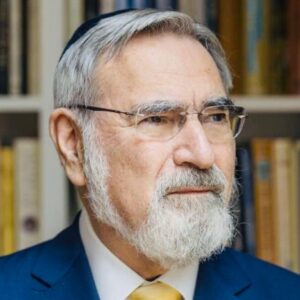
Racing into my Sunday morning dance exercise class my head was focused on the death of Lord Rabbi Jonathan Sacks. Competing for space was the news that Biden was now President of the United States and Aotearoa has sworn in a gloriously diverse government.
As the music blared out, my attention came back to synchronising leg and arm movements; always a challenge. So, I was caught unawares as the old song, Rivers of Babylon surged from the speakers, washing over me like an incoming tide bringing memories, stories, yearnings and the haunting sound of a Jewish cantor in Sydney’s Great Synagogue.
My childhood was full of Jewish biblical stories. The goings on in Eden, Egypt, Israel and Judah. Creation, disruption, floods, famines, wars, murder and shocking sexual shenanigans. Humanity hasn’t improved much since the stories were created.
I delighted in descriptions of the Temple in Jerusalem (Zion). A magnificent structure that had deep within, the holy of holies. But there was nothing in that space. No thing to worship. It was as though G-d was sacred space. Nothing more, nothing less.
This centre of Jewish worship was always at risk from Babylonian invaders. In 586 BCE they surged down from the north and sacked Jerusalem. Some survivors were carried away into captivity. As they sat beside the river of Babylon, they remembered Zion and wept. Now separated from traditions and rituals that gave them meaning. Not knowing how to sing the Lord’s song in a strange land. It’s all there in the Psalms.
In 1970, the Melodians used those words to create the chart topper, Rivers of Babylon. A reggae lament drawing attention to the Rastafarian movement that opposed unjust or oppressive governments (Babylon), whilst calling for black liberation and social justice. Boney M released their enormously successful version in 1978.
Perhaps we all responded to this song because we have an instinctual sense of what justice is. We know when we’re being done over even if that’s hard to articulate. When the balance necessary to a meaningful life is upended. And we know the value of crying out our distress.
Jonathan Sacks understood this. He was an Orthodox Jew, former Chief Rabbi of Great Britain, a towering intellect and author of over 30 books with an uncanny ability to write for ordinary folk. Lord Sacks spent his life drawing from the wisdom of the Jewish tradition to explore ideas of justice, truth, morality and how we might live together in an increasingly fragmented world.
In 2002, a few months after the destruction of the World Trade Centre, he published a stunning book, The Dignity of Difference: how to avoid the clash of civilisations. It ought to be required reading for politicians and religious leaders.
In it he points out that Jewish teaching about monotheism is not about one God. ‘To the contrary,’ he says, not gaining popularity with his critics, ‘it is that unity is worshipped in diversity.’ Sacks graciously concedes that this is a large and difficult idea and goes on to argue for a theology of difference as much more than just a religious perspective.
I understand him to be valuing our incredible and increasing diversity as a mitzvah, a blessing. Out of that we each contribute something unique and each contribution counts. But, ‘a primordial instinct going back to humanity’s tribal past makes us see difference as a threat. That instinct is massively dysfunctional in an age in which our several destinies are interlinked.’ He’s not wrong.
Leaving the dance studio, still somewhat uncoordinated, I discovered the Rivers of Babylon were on replay within me. A fitting song for now when it can feel as though we’re in a strange land with few familiar signposts. Under those circumstances it can be tempting to retreat to safety behind our own walls and build a few more for insurance.
Rabbi Sacks suggests an alternative. That we must learn the art of conversation, (music to a spiritual care practitioner’s ears) and let ‘our world be enlarged by the presence of others who think, act, and interpret reality in ways radically different from our own.’ And there you have it, the sacred space between us.

Love your article Sande. Unity in diversity. Embracing ideas and people different to us to help make us whole.
Thanks Louise. But I don’t think embracing difference is easy. We’re hard wired to be suspicious of difference so it’s the work of a lifetime to manage our lizard brain and its reactions!